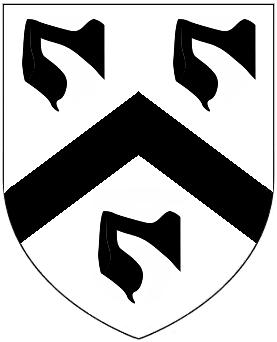Related Research Articles

John Lambert was an English Parliamentarian general and politician. Widely regarded as one of the most talented soldiers of the period, he fought throughout the Wars of the Three Kingdoms, and was largely responsible for victory in the 1650 to 1651 Scottish campaign.

The Rump Parliament was the English Parliament after Colonel Thomas Pride commanded soldiers to purge the Long Parliament, on 6 December 1648, of those members hostile to the Grandees' intention to try King Charles I for high treason.

The English Council of State, later also known as the Protector's Privy Council, was first appointed by the Rump Parliament on 14 February 1649 after the execution of King Charles I.
Colonel Philip Jones was a Welsh military leader and politician who sat in the House of Commons between 1650 and 1656. He rose to the rank of Colonel in the service of the Parliamentary Army under Fairfax during the English Civil War. As Governor of Swansea he successfully held the town against the Royalist forces.
Richard Salwey was an English politician who sat in the House of Commons variously between 1645 and 1659. He was a republican in politics and fought on the Parliamentary side in the English Civil War.
John Wilde was an English lawyer and politician. As a serjeant-at-law he was referred to as Serjeant Wilde before he was appointed judge. He was a judge, chief baron of the exchequer, and member of the Council of State of the Commonwealth period.
John Clarke, also known as John Clark, John Clerk, and John Clerke, was an English politician and Justice of the Peace who sat in the House of Commons from 1653 through 1660, and was a colonel in the Parliamentary army between 1651 and 1659.

Bussy Mansell was a Welsh politician who sat in the House of Commons at various times between 1653 and 1699. He was a zealous Parliamentarian during the English Civil War.
John Brown was an English politician who sat in the House of Commons in 1653.
Richard Price was a Welsh politician who sat in the House of Commons in 1653. He fought in the Parliamentary army in the English Civil War.
Hugh Courtenay was a Welsh politician who sat in the House of Commons in 1653. He was an active parliamentary officer in the English Civil War.

Sir John Carter was an English soldier, politician and administrator from Buckinghamshire, who served in the Parliamentarian army during the Wars of the Three Kingdoms. He settled in Denbighshire and was a Member of Parliament at various times between 1654 and 1660.

Francis White was an English soldier and politician who sat in the House of Commons in 1656. He died at sea after serving in Flanders.
John Langley was an English merchant and politician who sat in the House of Commons in 1653.
Thomas Madryn was a Welsh politician who sat in the House of Commons in 1654. He fought in the Parliamentary army in the English Civil War.
Andrew Ellice was a Welsh army officer and politician who sat in the House of Commons in 1654. He served in the Parliamentary army.
John James was an English politician who sat in the House of Commons in 1653. He served in the Parliamentary army in the English Civil War.
Edward Elvines was an English politician who sat in the House of Commons in 1654. He supported the Parliamentary cause in the English Civil War.
William Draper (1620-1672) was an English politician who sat in the House of Commons in 1653. He was an active supporter of Parliament during the Commonwealth.